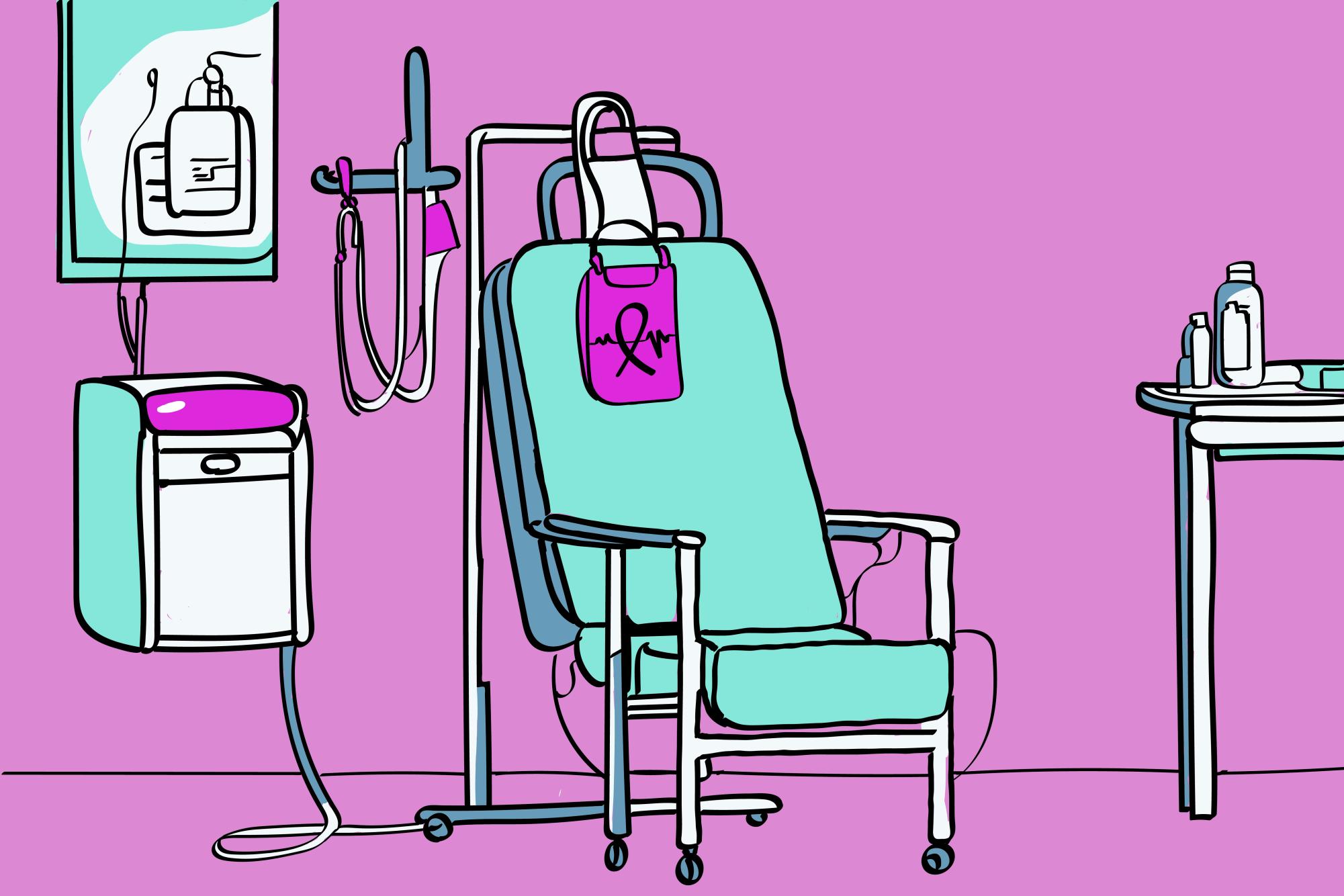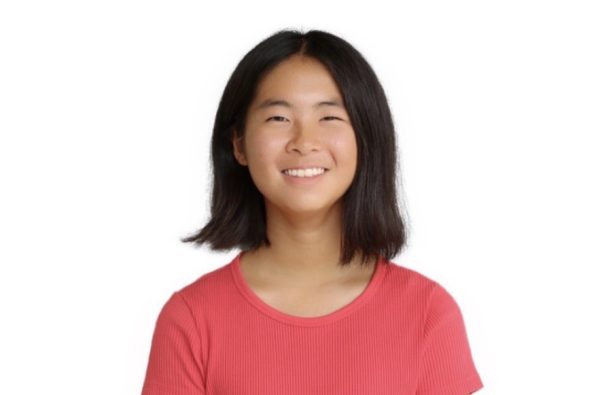“I went to the appointment alone as I assumed the lump I had found was a cyst, and as I sat in the mammogram office, I felt isolated. I felt as though I had been handed a death sentence,” said Kelsey Harrison.
Breast cancer is the second leading cause of cancer deaths in women in the United States, according to the American Cancer Society. The average risk of a woman in the United States developing breast cancer is one in eight, and breast cancer accounts for about one in three new female cancers each year.
These numbers reflect the lives of women whose futures have been irrevocably changed by a single, life-altering diagnosis.
Harrison, the CEO of Get Wild Retreats, was diagnosed with breast cancer at the age of 27.
“All I could picture was my almost 2-year-old son without a mother. Then came anger, rage, and confusion. The thought ‘why me’ came through my mind over and over again,” Harrison said.
Angell Troxler, a cancer survivor and the current education outreach administrator at Charleston Wine and Food, received her diagnosis through a voicemail from her doctor.
“Sheer panic took over. I cried, despite trying to hold back my tears because I was in the lobby of the doctor’s office when I listened to the message. I also was angry that, despite living a relatively healthy lifestyle, I still got cancer,” Troxler said.
For Stephanie Portnall, currently a wellness coordinator at BlueCross BlueShield, learning about her breast cancer diagnosis motivated her to get treatment.
“I read the results of the biopsy in MyChart, before the nurse called, so I already knew the answer. I didn’t know what to think at the moment, but I knew I would do whatever it took to rid myself of this disease,” Portnall said.
The average age of women in the U.S. who are diagnosed with breast cancer is 62 years old, according to the American Cancer Society. However, Natasha Ewa was diagnosed when she was 29 years old.
“When I first received my diagnosis, I had no personal experiences of anyone close enough to me who had experienced breast cancer themselves. So for me, hearing ‘you have cancer’ automatically made me feel and believe that I was going to die,” Ewa said.
After diagnosis, patients are presented with countless treatment options depending on the type of breast cancer they have. According to Cleveland Clinic, about 80% of breast cancer cases are invasive, warranting more aggressive treatment options.
“It changed everything about my life. A diagnosis takes the life you once knew and flips it around entirely. I went through 18 weeks of chemotherapy, a major surgery, and four weeks of radiation. Everything shifted, and my priorities changed completely,” Harrison said.
Treatments for breast cancer include surgeries like mastectomies and lumpectomies, where all or part of the breast tissue is removed. Surgeries are typically combined with chemotherapy, radiation therapy, hormone therapy, and more, according to Cleveland Clinic.
“I had a bilateral mastectomy and couldn’t shower for weeks because I couldn’t get my bandages wet. Once my bandages were removed, I had to see a wound specialist because I wasn’t healing properly. I literally had a hole in my cavity on my right side where the cancer was found. Once chemo started, it wiped me physically. Basic activities like washing dishes required a nap immediately after,” Troxler said.
Created by Arianna Zhu
With the physical struggles also came psychological struggles. About one in every four people diagnosed with cancer experience depression, according to the American Cancer Society, even after patients ring the bell that signals the end of their cancer treatment.
“During chemo, I felt particularly alone. While my little brother drove all the way from Kentucky to take me to my first infusion, I drove myself to all the others. There were many days when I would sit at home and cry. I was absolutely alone when I rang the bell, which was a real reflection of it all,” Troxler said.
Not only does breast cancer have a transformative effect on patients but it also holds the power to change relationship dynamics, for better or for worse.
“I had read that through cancer you will lose friends, but I did not think it would happen to me. Many of the people I thought were my closest friends did not show up for me during this time. Some of them completely abandoned me throughout it,” Harrison said.
Ewa experienced similar changes in the dynamics of her friendships.
“I made new friends, and I also lost friends. I had friends who, from the day that I shared my diagnosis, never said one word to me again. Never checked in, even to see if I was alive. It hurt. I did have moments where I cried. But my tears were less induced by knowing I had lost some friends, and more so from the layered concoction of what living now meant for me,” Ewa said.
However, Harrison has also seen her diagnosis strengthen her relationships in life.
“My partner showed up for me in every available instant. He never missed an appointment, went to every chemo, and carried me through the treatment. He supported me mentally and emotionally as well. Being a cancer patient is not pretty or cute, and we had only been dating for about six weeks when I was diagnosed, yet he chose to stay,” Harrison said.
Portnall also experienced varying responses from her friends and family after her diagnosis.
“Most of my family and friends were there for me every step of the way, bringing me food and sitting with me, but a few distanced themselves. I don’t know if it was because of the diagnosis, but it didn’t bother me,” Portnall said.
Even after cancer patients finish their treatment regime, their cancer journey is never truly “over.” According to the National Cancer Institute, about 25% of cancer survivors report experiencing anxiety, depression, and other psychosocial distress, making it important to support them after they finish treatment as well.
“I felt unsupported the first October after treatment when I was raising money to put care packages together for other survivors and some of my best friends didn’t show up to help me pack the boxes. I was so heartbroken and although other people helped, I felt that everyone had moved on since I was done with treatment,” Portnall said.
Cancer survivors often experience fear of disease recurrence or loss of support from friends and family, so it’s important to maintain empathetic care after treatment. According to City of Hope, 35% of cancer survivors experience feelings of Post Traumatic Stress (PTS).
“Once chemo is over, people aren’t free of cancer. Most people will be in this process for several more years after ringing a chemo bell. Also, trying to establish your new life after cancer can be a very emotional and tough time,” Troxler said.
Behind every cancer diagnosis is a person fighting for survival. Supporting a breast cancer patient means looking beyond their diagnosis to acknowledge the emotional and physical challenges they endure.
“Breast cancer impacts every thought, every area, and every aspect of your life. And even when the big moments of treatment are complete, we are not done fighting, healing, and going through cancer. We still need support, and we need to be loved and accepted for who we are after cancer because who we are after is entirely different from who we were before,” Harrison said.



